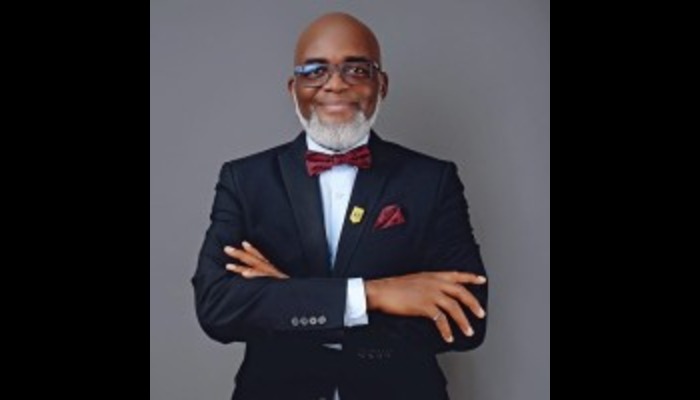HR professionals in Nigeria urged to embrace AI as an indispensable partner
Human resources (HR) leaders in Nigeria have been urged to embrace Artificial Intelligence (AI) as an indispensable partner, and not a threat to human capability.
This was the core challenge issued at the ‘Reimagine HR 2.0’ conference on HR Technology and Innovation, hosted by SIAO Partners and themed ‘The Rise of Smart Talent’.
The conference’s central message was articulated by Victor Banjo of the Lagos Business School, who stressed the enduring importance of human interaction. He noted that, despite technological advancements, “business deals are still closed over lunch, not over chatbots,” underscoring the necessity of the human touch in high-stakes professional contexts.
Read also: AI and the Future of Work in Nigeria: Why Talent Leaders Must Act Now
Samson Iyayi, head of HR Consulting at SIAO Partners, built on this, laying down a clear marker for HR’s role. While conceding that AI effectively processes productivity at scale, he stressed its fundamental limitations, noting that “AI can tell you who is delivering results, but it cannot sense who is quietly burning out.”
Arguing for a symbiotic relationship between man and machine, he stated, “AI may be the brain, but HR must remain the heart, and when the brain and heart work together, organisations truly thrive.”
From manual screening to automation
Reflecting on the evolution of recruitment, Banjo provided a stark contrast between HR from the past and present. He recounted leading a major recruitment drive for British American Tobacco in 2002 that required his team to manually sort over 20,000 CVs to arrive at just 206 hires.
This process, which relied on intuition and structured assessment, produced strong talent outcomes, with many of those hires later rising to senior executive roles globally.
However, he conceded that repeating the exercise today would be foolhardy, highlighting the importance of deploying algorithms to handle the data-heavy lifting at scale.
He also highlighted a present-day success story from the Lagos Business School, where staff morale has improved since an AI agent, ‘Nexa,’ began handling repetitive customer enquiries. He described Nexa as a “co-worker rather than a tool,” freeing up the human team to focus on meaningful work.
Read also:The future of work in Africa: Trends every CEO & HR leader should watch out for
Banjo insisted that AI complements rather replaces HR capability, provided professionals upskill. He warned that the real risk to HR is not the technology itself, but leaders who “lack the mindset to ask the right questions of the data.”
HR professionals, he concluded, must resist the urge to automate empathy and instead focus on becoming the “custodian of humanity” in an AI-driven workplace.
The rehumanising of work: Defining ‘Smart Talent‘
A major focus of the discussion was the shifting definition of talent.
Alasa, argued that AI has moved from a theoretical future to a lived present, and that the transformation is not merely digital, but behavioural.
Read also:Professionals move to advance LinkedIn innovation, future of work in Nigeria
Alasa stated that the traditional idea of talent is now outdated. “Smart talent is not the same as skilled talent,” he declared, arguing that “skills are no longer the competitive edge.” True smart talent is instead defined by the ability to learn fast, adapt fast, and collaborate with machines.
He offered a striking example, “An average nurse leveraging AI diagnostics can outperform a senior doctor who refuses to embrace AI.”
He predicted a profound disruption to the architecture of work, which is the collapse of job descriptions in favour of capability maps.
The end of performance reviews, replaced by outcome narratives, and the death of linear career paths, giving way to capability journeys.
The new world of work, he declared, is human empathy plus digital intelligence. He asserted that AI is not merely reskilling the workforce but “rehumanising” it, forcing HR to evolve away from being administrative custodians.
AI, a companion not a competitor
Tonye Briggs, founder of DNA Learning Solutions, reinforced the dominant message that “HR and AI are to work hand in hand, and AI is a companion, not a competitor.”
Briggs focused on contextual relevance, warning against what he called Nigeria’s habit of “copy and paste” in technology adoption. He stressed that most AI tools were built in different climates and work cultures, requiring local adaptation.
“Everyone here must contextualise the use of AI… you must put your environment into the equation.”
He also cautioned against removing the human layer in the pursuit of automation. “AI stripped out the human element in our HMO project results; no machine can replace the human judgments required for results.”
For those using generative AI, he stressed that “prompt engineering is now a critical skill; if you don’t refine your prompts, you will get the wrong outcome.”
In a broader discussion, experts also warned that age-bias is quietly emerging in some firms favouring “young blood,” but countered this by citing examples from Google where former CIA and military officers now lead cyber functions, proof that the mind is the competitive advantage.
Also, with shifting work realities, the new rule is “as-you-go knowledge,” replacing long, outdated curricula with micro-modules.

